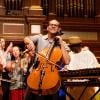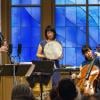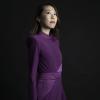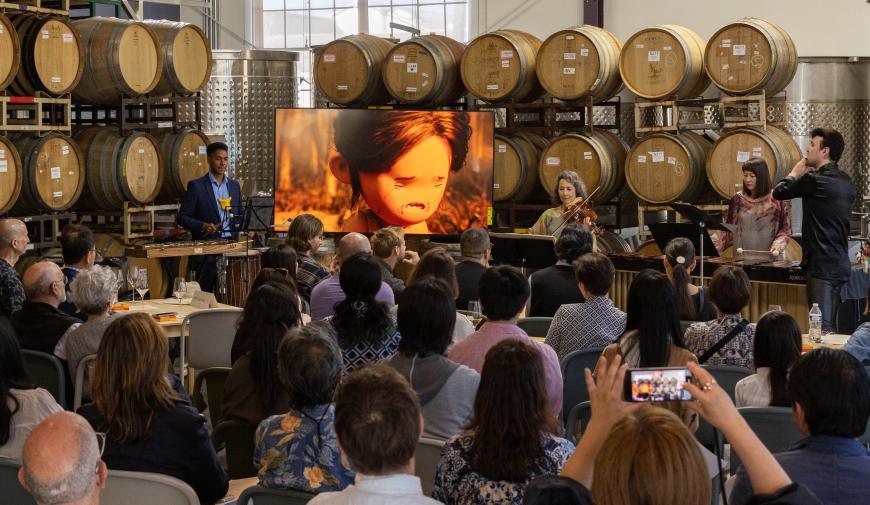
Tech entrepreneurs aren’t the only self-starters drawn to the San Francisco Bay Area.
In the cultural sphere, artists like Haruka Fujii are taking matters into their own hands when they see creative realms that should be getting far more exposure. Ever since the Silkroad Ensemble percussionist arrived in the Bay Area about a decade ago, she’s noticed that despite numerous organizations devoted to traditional Japanese art forms, “in terms of the contemporary Japanese art scene, there’s no place where you can go to experience it,” she said.
Determined to rectify the situation, Fujii started laying the groundwork for Nippon Kobo, which takes place Sept. 15 at Fort Mason Center for Arts & Culture. Conceived as the first in an ongoing series of events, the inaugural festival brings together leading Bay Area chamber musicians, an award-winning animator, and craft beer makers from Japan.
Opening with a conversation between Fujii, beer brewer Shigeharu Asagiri, and animator and director Dice Tsutsumi, Nippon Kobo is organized around the theme of the seasons, which heavily shape Japan’s culture and aesthetics.
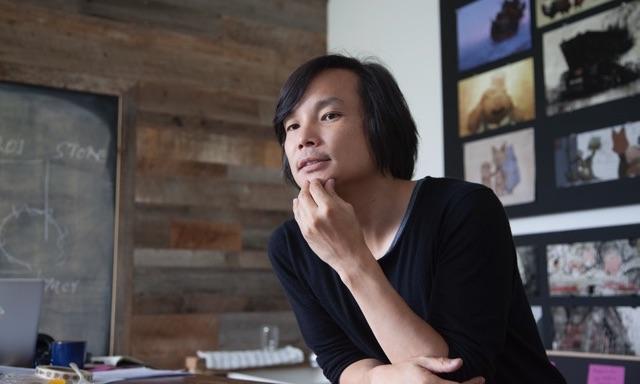
For the Tokyo-born Tsutsumi, a former art director at Pixar and founder of the Emmy Award-winning Berkeley animation studio Tonko House, the popularity of anime and Japanese cuisine and fashion doesn’t mean that other facets of the country’s culture are fully appreciated or available to U.S. audiences.
“As a Japanese native, I’ve witnessed misunderstanding and stereotyping of Japanese culture,” he said on a recent video call. “There’s definitely more we feel we can introduce, and I’m very inspired by Haruka’s vision to do this annual event introducing different aspects of contemporary Japanese culture. I don’t think something like this has ever been done before.”
More than just presenting a showcase of Japanese culture, Fujii aims to create a community art space akin to Brooklyn’s National Sawdust or Greenwich Village’s Le Poisson Rouge — “a creative gathering for arts and culture where people go to experience these things, to hang, to interact with others and learn something new,” she said. “In San Francisco, the SF Symphony’s SoundBox [series] is one of the only things like that I’ve been excited about.” Fujii’s vision entails bringing food, libations, visual arts, and music together for an immersive experience.
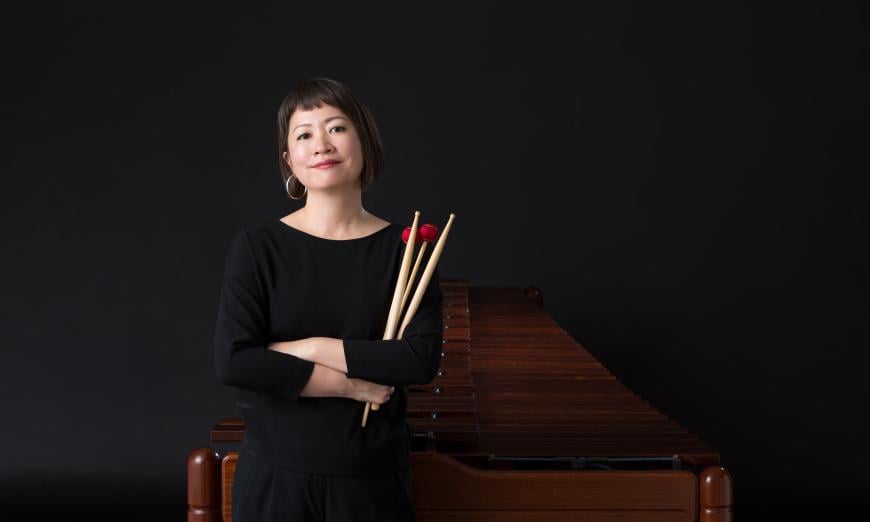
Working with Bay Area visual artist Asaki Oda, Tsutsumi has created a subtle visual setting for composer Tōru Takemitsu’s iconic work Seasons — to be performed by the Nippon Kobo Ensemble, featuring Kyle Bruckmann on oboe, Jeff Anderle on bass clarinet, Leslie Tagorda on clarinet, Jamael Smith on bassoon, and Fujii and Divesh Karamchandani on percussion. Oda’s three-dimensional installation creates a mesh of scrims, made from translucent Japanese rice paper, onto which Tsutsumi can project atmospheric imagery “that’s very impressionistic,” he said. “The rice paper will break it up even more, and the idea is I didn’t want it to compete with or distract from the music.”
The musical program includes an early, minimalism-inspired work by Joe Hisaishi, who gained international acclaim with his film scores for director, animator, and Studio Ghibli founder Hayao Miyazaki. The afternoon’s centerpiece is the premiere of Berkeley composer Erika Oba’s Turning Leaves, Falling Ash. A gifted jazz pianist and flutist who has composed several pieces for San Francisco’s Del Sol String Quartet in recent years, Oba credits composer Gabriela Lena Frank’s mentorship program with playing a pivotal role in her evolution as a chamber composer.
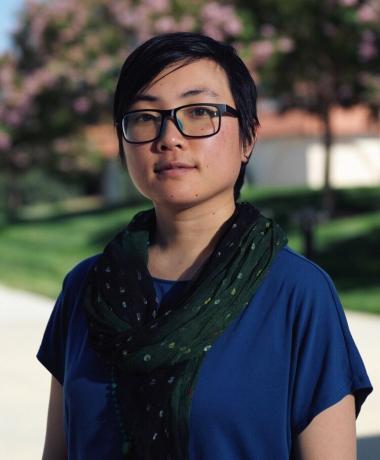
Commissioned by Fujii to write a work for oboe, clarinet, bassoon, and marimba, Oba addressed the festival’s seasonal theme by composing a piece inspired by her local environment. “In Berkeley, we don’t get the vibrant colors of the East Coast or Japan, but we get some color shifts. What’s inescapable to think about is the wildfires changing the colors of the sky and the ash,” she said.
Deeply involved in the Asian American jazz scene, Oba will actually be performing with her trio earlier in the day at St. Alban’s Episcopal Church in Albany, a separate concert presented by Calliope: East Bay Music & Arts. She’ll also be celebrating the legacy and music of the late Japanese American pianist and composer Glenn Horiuchi with the Zen of Glenn quartet on Sept. 19 at Wyldflowr Arts in West Oakland and on Sept. 21 at South San Francisco’s Sky Cafe (the home base for a vibrant scene curated by bassist Chris Trinidad).
Born and raised in Saitama, a major urban area about 20 miles north of Tokyo, Fujii hails from a celebrated percussion family. Her mother is the esteemed marimbist Mutsuko Fujii, and her younger sister Rika Fujii is a leading concert percussionist in Tokyo who’s also well versed in taiko. “My father is the huge music lover, but he doesn’t play,” Haruka Fujii said. “He’s an architect, and he has three women around him hitting things all the time.”
Fujii studied at Tokyo National University of Fine Arts and Music, Juilliard, and Mannes College of Music and was making a name for herself on the New York scene in the late aughts when she subbed in Yo-Yo Ma’s Silkroad Ensemble. Before long she had joined the group, and in recent years she’s started contributing compositions while serving on the organization’s artistic leadership team alongside Artistic Director Rhiannon Giddens. With Silkroad, Fujii performed widely around California last season in Giddens’s “American Railroad” project.
Launching Nippon Kobo marks a major leap for Fujii as a Bay Area mover and shaker committed to pursuing her own vision. She plans to build on the momentum generated by the Sept. 15 festival with two smaller events in the spring. Determined to showcase the music and artists who shaped the cultural scene that nurtured her as a child, she’s found no shortage of willing collaborators.
“There are so many other composers lined up and ready,” Fujii said. “Culturally, we’re not so good at selling ourselves. But I’m going to keep bringing these masterworks from the 1960s-to-1980s era, which was a very exciting time for contemporary music in Japan and is my personal passion. Coming from my experience of working with Silkroad, I think the Bay Area needs more spaces like this, where we can talk about the arts and experience them together.”


